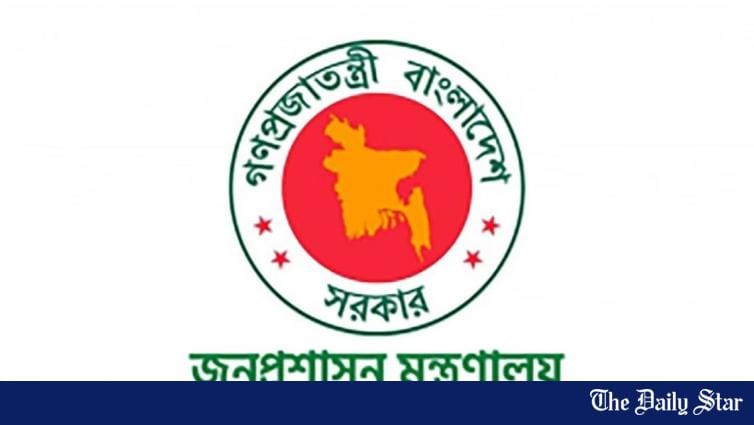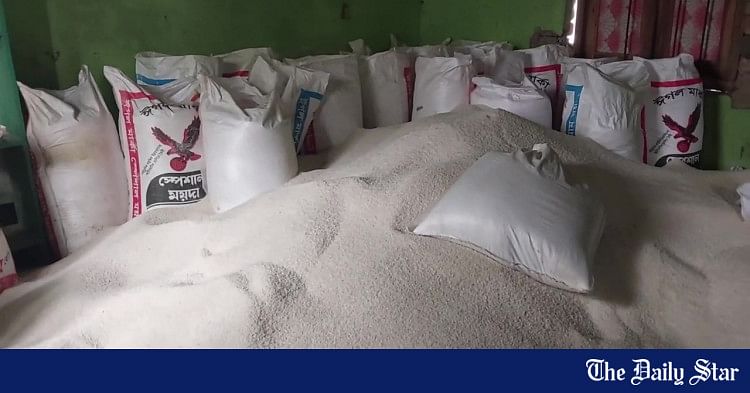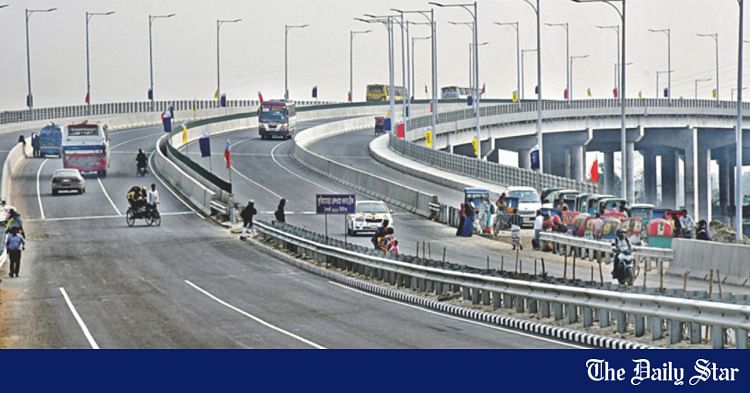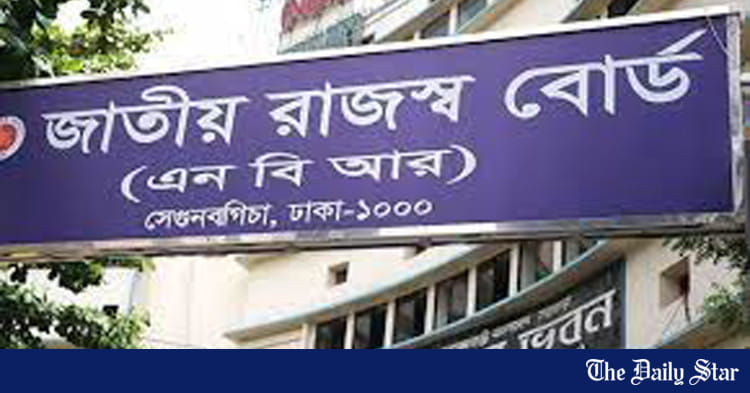Will the construction of roads paved with gold continue?
The cost of the two-lane Cox's Bazar-Matarbari road is likely to be more than double the cost of the country's most expensive highway from Dhaka to Bhanga in Faridpur via the Padma Bridge. FILE PHOTO: STAR
A common feature of mega infrastructure projects undertaken by the previous government was the extremely high construction costs. Due to planning flaws, irregularities, corruption, etc, Bangladesh had one of the highest highway construction costs in the world.
The White Paper on the State of the Bangladesh Economy, commissioned by the interim government, also highlighted the huge expenditure on highway construction. According to it, during the previous government's tenure, the construction cost of four-lane highways in Bangladesh averaged $6.35 million per kilometre, which was 4.4 times higher than in India, 2.15 times higher than in Pakistan, 1.6 times higher than in China, and 3.7 times higher than in Turkey.
It was expected that things would change under the interim government, which came to power through a popular uprising. But in reality, the construction of "roads paved with gold" has not stopped even during this government's tenure. A recent Prothom Alo report shows that the construction of the Cox's Bazar-Matarbari two-lane road will cost Tk 476 crore per km.
The most expensive highway in the country so far was the expressway from Dhaka to Bhanga in Faridpur via the Padma Bridge. The 55-kilometer-long, four-lane highway cost Tk 11,440 crore to build. That is, the cost of constructing the expressway per kilometre was about Tk 201 crore, which was widely criticised.
It appears that the cost of the two-lane Cox's Bazar-Matarbari road, to be built during the interim government's tenure, will be more than double that of the most expensive four-lane Dhaka-Bhanga Expressway, built during the Awami League era. Muhammad Fouzul Kabir Khan, an adviser to the interim government, has also raised questions about this huge expenditure. At a seminar in Dhaka on February 25, while informing the audience that he had to approve the highway being implemented with a foreign loan, he also raised the question: "will this road be paved with gold or diamonds?"
What could be the reason for such a huge cost in constructing the road? According to Prothom Alo's report, this huge cost cannot be explained by the increase in the price of construction materials alone. One of the reasons for such a high cost could be non-competitive bidding and the conflict of interest of the lending agency.
The Japan International Cooperation Agency (JICA) is providing the loan for the Matarbari coal power plant and deep-sea port project in Maheshkhali, Cox's Bazar. The road will be constructed under this project. The consultant hired to design the project is from Japan, the project financer. The conditions for the construction tender were prepared in such a way that contractors from countries other than Japan could not compete effectively. The estimated cost for constructing the 27.2 km long road was Tk 7,382 crore (which is also very high, at Tk 271 crore per km). However, the combined bid of the Japanese contractors stood at Tk 11,500 crore, which is 58 percent more than the estimated cost.
Normally, if a bid exceeds the estimated cost by more than 15 percent, re-tendering can be done. But that could not be accomplished due to JICA's objections. JICA stated that re-tendering just to reduce costs or select the lowest bidder is not in line with their procurement policy. As a result, just like during the Awami League era, roads are being built at costs per kilometre that are several times higher than in India, China, or Europe.
Meanwhile, the interim government's Task Force Report on Re-strategizing the Economy and Mobilizing Resources for Equitable and Sustainable Development recommended avoiding such conflicts of interest. The report mentioned that Bangladesh secures infrastructure project financing from JICA, China, India, etc, under government-to-government (G2G) bilateral frameworks with limited tendering, which results in high project costs. Particularly, projects where feasibility studies, detailed designs, construction, and supervision are all managed by the lending country create conflicts of interest and tend to drive up construction costs.
A few examples of such projects include the railway bridge on the Jamuna River (JICA-funded, with detailed design, supervision consultancy, and contractors from Japan), the third terminal (JICA-funded, with detailed design, supervision consultancy, and contractors from Japan), and the Karnaphuli Tunnel (China-funded, with detailed design, supervision consultancy, and contractors from China). The task force recommended that no project should be implemented with foreign loans where the terms of the loan contradict competitive bidding, requiring the project's consultants, contractors, and materials to be sourced from the lending country.
It is true that the loan agreement for the Matarbari project was signed during the previous government's tenure. However, the present government could have followed the recommendations and tried to address these disparities in the loan agreement. The government could have told JICA—just because you are lending money for the road, we are not bound to agree to unfair conditions. Since the people of Bangladesh will have to repay the loan with interest, the government must have the authority to determine how the loan money is spent. Otherwise, if necessary, Bangladesh could construct the 27 km of road with its own funds, but it should not adhere to unfair conditions.
Similar initiatives need to be taken regarding ongoing projects under the Indian Line of Credit (LoC) as well. Several infrastructure construction projects in Bangladesh are being funded by Indian loans to facilitate transit with India. According to the terms of the Indian loan, 75 percent of the raw materials required for these projects must be purchased from India, and contractors must be hired from there. Moreover, there is a question about how essential these hugely expensive infrastructure projects are for Bangladesh at this time.
For example, as reported by Samakal, a 50-kilometre-long, four-lane highway is being constructed from Ashuganj River Port through Sarail, Kasba, and Dharkhar in Brahmanbaria to Akhaura Land Port under the Indian LoC. This road, which is being constructed at a cost of Tk 5,791 crore, will connect Agartala in Tripura, India, with Ashuganj River Port. Additionally, the road from Mainamati in Cumilla to Dharkhar will be upgraded to four lanes with Indian LoC funding at a cost of Tk 7,188 crore. This will make it easier to transport goods unloaded at Chittagong Port to Tripura and Assam. Although India will benefit from these two roads worth Tk 12,979 crore, there is a question as to what benefit Bangladesh will receive.
Bangladesh will also have to bear the cost of regular maintenance of the roads after construction. There is a question as to whether the huge expenditure being made to increase connectivity between Sylhet, Cumilla, and Chattogram will be recovered merely by transporting Indian goods.
One piece of good news is that the two countries have agreed to scrutinise projects under the Indian LoC that are still in the process of appointing consultants and contractors or preparing project proposals. However, it is not just the project list that needs reevaluation—the terms of the project loans must also be reviewed.
If the interim government could genuinely reform the unfair terms of loans from various foreign lenders in accordance with the task force recommendations, its commitment and sincerity towards reform would be more evident to the people.
Kallol Mustafa is an engineer and writer who focuses on power, energy, environment and development economics.













































